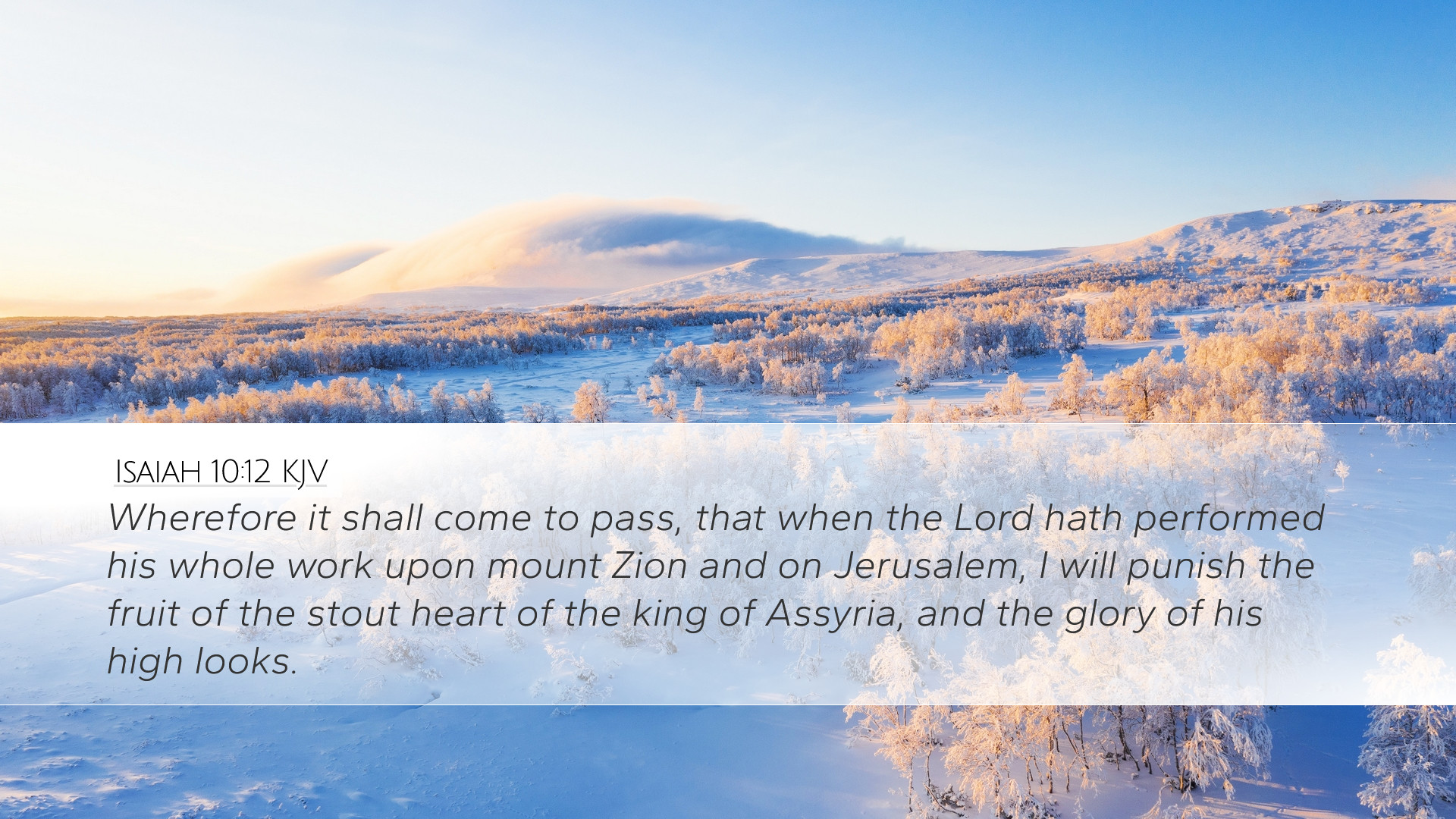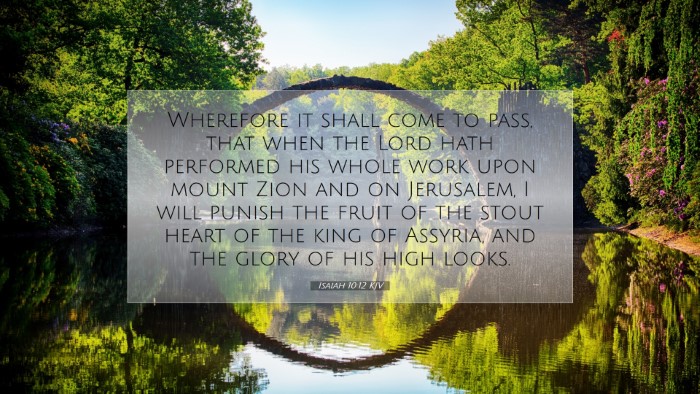Commentary on Isaiah 10:12
Isaiah 10:12 states, "When the Lord has finished all His work on Mount Zion and on Jerusalem, He will say, ‘I will punish the king of Assyria for the willful pride of his heart and the haughty look in his eyes.’”
This verse is pivotal for understanding God's sovereignty in judgment and His righteous dealings with nations and leaders. Many commentators, such as Matthew Henry, Albert Barnes, and Adam Clarke, delve deeply into its implications for both historical context and theological significance.
Historical Context
The backdrop of Isaiah's ministry includes the Assyrian domination of Israel and the grave threats posed to Jerusalem. This verse addresses the Assyrian king's arrogance and sets a foundational understanding for God's response to pride and oppression.
- Assyria as a Tool of Judgment: Henry emphasizes that Assyria was used by God to execute judgment upon Israel for their sins. However, this does not exempt Assyria from accountability for its wickedness.
- Haughty Pride: Barnes notes that the pride of the Assyrian king led to his downfall—a theme recurrent in Scripture, indicating that pride goes before destruction (Proverbs 16:18).
- Divine Sovereignty: Clarke highlights the significance of God being in control over national powers. Although Assyria was a formidable foe, God had predetermined its limits.
Theological Insights
The theological implications of Isaiah 10:12 are profound, addressing the interplay between divine sovereignty and human agency.
- God’s Sovereignty Over Nations: All commentators resonate with the understanding that God orchestrates history. As Clarke points out, the juxtaposition of God’s work on Mount Zion and His judgment on Assyria illustrates His supreme authority.
- Humility Before God: This verse serves as a call to humility for all leaders, as pride invites judgment. Henry rusticates on this by pointing out that those in power must recognize their accountability to God.
- Justice in Judgment: Barnes asserts that God's punishment of the Assyrian king will be an act of justice. This underscores a broader biblical theme where God addresses sins not only of nations like Israel but also their oppressors.
Practical Applications
Pastoral and scholarly application of this verse should focus on several aspects of faith:
- Leadership Accountability: This text implores leaders in all sectors to remain vigilant against pride. Pastors and church leaders can draw lessons on humility and the need for reliance on God's grace.
- Living Under God’s Authority: Followers of Christ are reminded to submit to God’s sovereignty in their lives. Acknowledging that God oversees leadership may foster trust in His plans, even in uncertain times.
- Hope in Justice: Believers can take hope in the assurance that God will enact justice. This may comfort those oppressed by unjust leaders or systems, echoing the hope found within Scripture for ultimate divine retribution and peace.
Conclusion
Isaiah 10:12 serves as a potent reminder of God's control over the historical and spiritual realms. Various commentators affirm the truth that God, while using nations for His divine purposes, will hold them accountable for their pride and wickedness.
In every context, whether for nation, church, or individual, this verse remains a significant caution against pride and a powerful declaration of God’s ultimate justice and ability to deliver His people.


